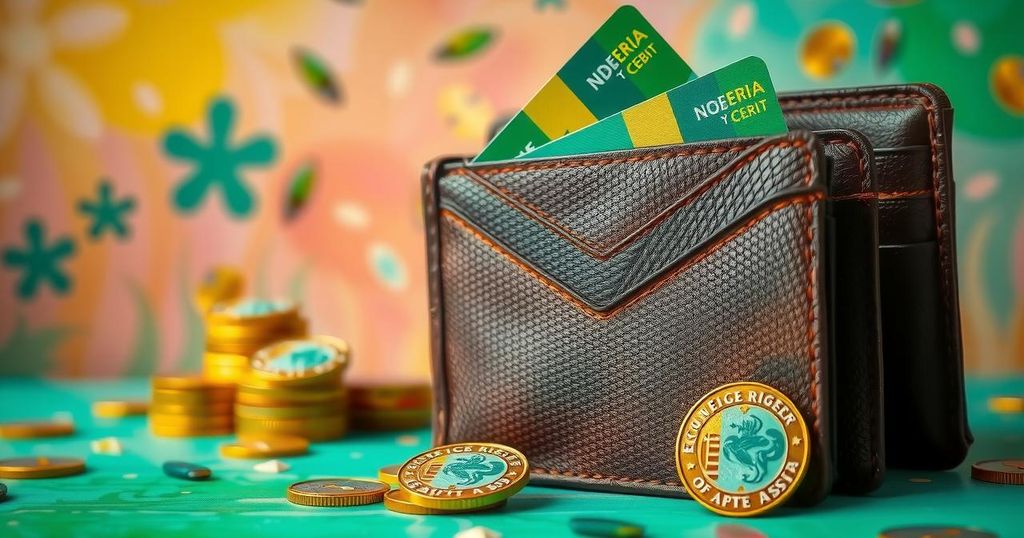Naira Debit Cards Go Global Again, Boosting Economic Confidence

- Naira debit cards for international transactions resume after three years.
- GTBank leads with a $1,000 quarterly transaction limit for naira cards.
- Banks like UBA and First Bank have joined in enabling global card use.
- Nigerian currency gains as naira strengthens against the dollar.
- Central Bank reforms attract increased foreign capital and bolster reserves.
Naira Debit Cards Resume International Transactions
Nigerians received a welcome boost on Monday with the news that banks have resumed the use of naira debit cards for international transactions. This is significant, especially after a three-year period during which many faced difficulties when trying to pay for international subscriptions due to a ban on local debit cards. Now, customers can finally breathe a little easier, appreciating this newfound access to global marketplaces.
Imposed Spending Limits Reflect Market Adaptations
Specifically, GTBank announced that customers can use their naira debit cards with a limit set at $1,000 per quarter. This limit encompasses all forms of transactions, including ATM cash withdrawals, online purchases, and POS payments made outside of Nigeria. Other banks have set similar limits, like Stanbic IBTC and First Bank, each restricting monthly spending to $500. The Universal Bank of Africa (UBA) has joined the fray, stating that all its Premium Naira Cards are now enabled for international use, reinforcing its commitment to providing enhanced banking experiences. This places more power back into the hands of consumers who were hit hard during the previous ban.
Economic Analysts Observe Currency Strengthening
Meanwhile, economic analysts are paying close attention to the implications of this resurgence of the naira debit card. For instance, Ayokunle Olubunmi from Agusto & Co pointed out enhanced liquidity in the foreign exchange market as a driving factor behind banks reactivating these cards. With the naira slightly appreciating to 1,520.74 against the dollar as of Wednesday, there is a small but felt momentum building up in the currencies. Improved foreign inflows and strategic policies from the Central Bank of Nigeria also play a role in this gradual strengthening, marking a hopeful turnaround for the nation’s economy.
Central Bank’s Bold Reforms Signals Economic Recovery
In recent months, the Nigerian government and the Central Bank have launched significant reforms aimed at providing more stability in the economic landscape. From liberalizing the foreign exchange market to overhauling fiscal policies, these bold steps have facilitated a much-needed infusion of foreign capital into the economy. Consequently, Nigeria has seen a promising upswing in foreign exchange reserves, which climbed to $40.19 billion, demonstrating improved economic health. Of particular note, new initiatives by the Central Bank to streamline foreign exchange inflows have further buttressed local liquidity and overall market confidence. These developments bode well for businesses and individual consumers alike, as the naira’s ability to make overseas transactions becomes less of a hurdle.
Restoration of Spending Power Indicates Economic Optimism
The news of naira debit cards’ revival comes as the economy looks to navigate through various external challenges, including a history of constrained access to foreign exchange which had nudged many towards the unofficial forex market. Experts suggest that the resumption of international transaction capabilities suggests a shift towards normalization in the economy. Notably, these reforms and the subsequent restoration of international spending for Nigerians are indicative of a more resilient financial environment, conducive to long-term economic stability. However, it remains to be seen how sustainable this growth trajectory will be, especially considering Nigeria’s pressing needs for infrastructural and agricultural investments, as pointed out by the IMF.
In summary, the resumption of naira debit card usage for international transactions marks a significant milestone for Nigeria’s economy. It not only enhances consumer confidence but also reinforces the improving state of the naira, supported by government reforms. As the nation navigates the path toward economic recovery, there is cautious optimism that these changes could pave the way for a more stable and inclusive economic future.







